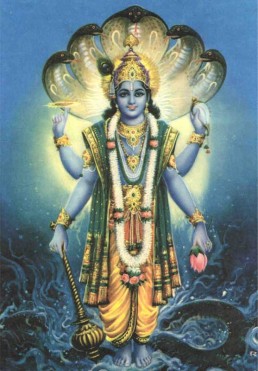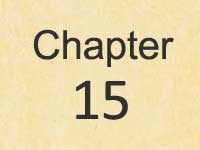
पुरुषोत्तमयोग
Puruṣottama-Yoga - The Yoga of the Ultimate Person
In this chapter, the Lord describes the nature of the Supreme Spirit in all its implications. This Spirit is effectively a secret for all of us since its comprehension seems beyond our grasp. Knowing the limitations of the mind, the Lord desribes the unknown in terms of the known and thus guides us towards that Unconditional Eternal Factor known as “Purushottama”. Below are the main themes of Chapter 15:
Verses 1 - 3
Description of saṃsāra
Verses 3 - 6
Means of liberation
Verses 7 - 11
Brahman as jīva
Verses 12 - 15
Brahman as jagat
Verses 16 - 18
Brahman as puruṣottama
Verses 19 - 20
Glory of puruṣottama-jñānam
Gita Chapter 15 - 20 Verses
Chapter 15 - 20 Verses
Commentary by Swami Paramarthananda
Background
[In the 13th and 14th chapters, the Lord dealt with the main theme of the Gītā — the essential oneness of jīva and Īśvara. Being a subtle topic, Kṛṣṇa discusses the same in this chapter also, in a different way.]
In the first two and a half verses, Kṛṣṇa gives a description of the vast and endless saṃsāra by comparing it with the mighty aśvattha-tree. Like this tree, this saṃsāra is vast, many-branched, well-rooted and not easily destructible. To add to this is its mysterious nature. (The jīva is caught in this saṃsāra, helplessly struggling to free itself.)
In the next two and half verses (upto the 5th), Bhagavān talks about the means to get out of this saṃsāra. The first step is to de-velop detachment from this saṃsāra by recognizing its binding nature. (As long as one has value for worldly pursuits, one’s mind will not be available for seeking freedom.) Having withdrawn the mind from worldly desires, one should seek Brahman, the cause of everything (4). (Seeking Brahman is nothing but jñānayoga — vedantic enquiry under a guru.) Then, Kṛṣṇa highlights the qualifications necessary for this knowledge. Freedom from (reaction towards) the pairs of opposites, pride, delusion, and attachment as well as a commitment to vedantic enquiry are emphasized here (5).
In the 6th verse, the Lord talks about the nature of Brahman. It is not illumined by anything (because it is the self-effulgent con-sciousness which illumines everything). Attaining this Brahman, the supreme abode of the Lord, one does not return to saṃsāra again.
[In the following sections, Kṛṣṇa reveals that Brahman alone ex-presses in the form of jīva and jagat (universe). From this it becomes clear that reaching Brahman does not involve travel.]
From the 7th to the 11th verse, Kṛṣṇa shows that the jīva, the con-sciousness in every being, is the Lord’s (Brahman’s) expression only (7). At the time of death, this jīva alone takes the mind and sense-organs from one body to another body. (8). It is this jīva who experi-ences everything through the sense organs (9). Thus, the Lord alone is expressing in the form of the very life and its functions in every being (10). The pure-minded ones recognize this whereas the deluded ones do not (11).
From the 12th to the 15th verse, Kṛṣṇa shows how the jagat (the universe) also is an expression of the Lord (Brahman). The light in the sun, the moon, and the fire is the Lord only (12). In the form of the sunlight and moonlight, the Lord alone sustains all living beings (13). As the digestive fire, it is the Lord who digests the food (14). The Lord alone is behind all the mental faculties of knowledge, memory, etc. He is the author and the content of the Vedas as well as the knower of the Vedas (15).
(Thus, Kṛṣṇa reveals that Brahman alone is in the form of jīva and jagat. Hence reaching Brahman is in the form of understanding only — understanding that Brahman is never away from either oneself or the universe.)
In the next three verses, Bhagavān reveals Brahman in its true na-ture. Brahman, in the form of the manifest universe, is called kṣarapu-ruṣa. As the unmanifest universe (māyā), the same Brahman is called akṣarapuruṣa (16). Both these puruṣas are relative. Beyond these two puruṣas is the uttamapuruṣa, the absolute. Because of its superiority, it is called paramātmā or puruṣottama. It is the imperishable (attribute-less) Brahman because of which everything exists (17, 18).
Concluding the teaching, Kṛṣṇa glorifies this knowledge as the means of fulfillment. With an undeluded mind, the one who knows this most secret knowledge of puruṣottama, becomes the knower of all and a person of fulfillment (19, 20).
The main topics discussed in this chapter are:
- Description of saṃsāra: 1 to 3
- Means of liberation: 3 to 6
- Brahman as jīva: 7 to 11
- Brahman as jagat: 12 to 15
- Brahman as puruṣottama: 16 to 18
- Glory of puruṣottama-jñānam: 19, 20
Since the main topic of this chapter is puruṣottama, this chapter is called Puruṣottama-yoga.

